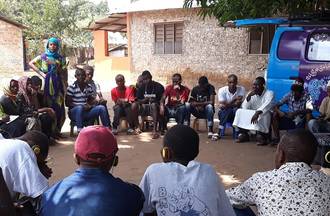CT and PCVE Policy and Practice
This programme focuses on improving effectiveness and impact of preventing and countering terrorism and violent extremism policy and practice.
Programme Introduction
Over the last two decades there has been a significant security focus on global counterterrorism (CT) policies and initiatives aimed at preventing and countering violent extremism (PCVE). The Terrorism and Conflict Studies team has a long history of building the evidence base for effectiveness and impact of these efforts through our research, training and support.
Programme team
Dr Jessica White
Acting Director of Terrorism and Conflict Studies
Terrorism and Conflict
Dr Joana de Deus Pereira
Senior Research Fellow
RUSI Europe
Dr Antonio Giustozzi
Senior Research Fellow
Terrorism and Conflict
Christopher Hockey
Senior Research Fellow
RUSI Nairobi
Michael Jones
Senior Research Fellow
Terrorism and Conflict
Petra Regeni
Research Analyst and Project Officer
RUSI Europe
Chris Goodenough
Programme Manager
Terrorism and Conflict
Timothy Kimaiyo
Threat Analyst | RUSI Consultant
RUSI Nairobi

























